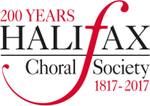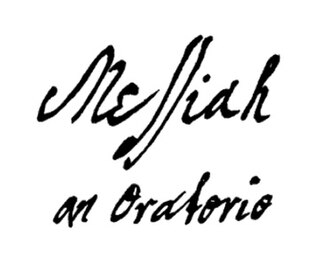
Messiah is an English-language oratorio composed in 1741 by George Frideric Handel. The text was compiled from the King James Bible and the Coverdale Psalter by Charles Jennens. It was first performed in Dublin on 13 April 1742 and received its London premiere a year later. After an initially modest public reception, the oratorio gained in popularity, eventually becoming one of the best-known and most frequently performed choral works in Western music.

Brighouse is a town within the metropolitan borough of Calderdale, in West Yorkshire, England. Historically within the West Riding of Yorkshire, it is situated on the River Calder, 4 miles (6.4 km) east of Halifax. It is served by Junction 25 of the M62 motorway and Brighouse railway station on the Caldervale Line and Huddersfield Line. In the town centre is a mooring basin on the Calder and Hebble Navigation. The United Kingdom Census 2001 gave the Brighouse / Rastrick subdivision of the West Yorkshire Urban Area a population of 32,360. The Brighouse ward of Calderdale Council gave a population of 11,195 at the 2011 Census. Brighouse has a HD6 postcode.
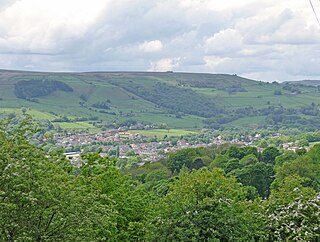
Calderdale is a metropolitan borough of West Yorkshire, England, which had a population of 211,439. It takes its name from the River Calder, and dale, a word for valley. The name Calderdale usually refers to the borough through which the upper river flows, while the actual landform is known as the Calder Valley. Several small valleys contain tributaries of the River Calder. The main towns of the borough are Brighouse, Elland, Halifax, Hebden Bridge, Sowerby Bridge and Todmorden.
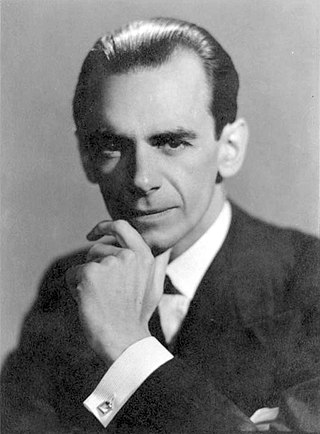
Sir Harold Malcolm Watts Sargent was an English conductor, organist and composer widely regarded as Britain's leading conductor of choral works. The musical ensembles with which he was associated included the Ballets Russes, the Huddersfield Choral Society, the Royal Choral Society, the D'Oyly Carte Opera Company, and the London Philharmonic, Hallé, Liverpool Philharmonic, BBC Symphony and Royal Philharmonic orchestras. Sargent was held in high esteem by choirs and instrumental soloists, but because of his high standards and a statement that he made in a 1936 interview disputing musicians' rights to tenure, his relationship with orchestral players was often uneasy. Despite this, he was co-founder of the London Philharmonic, was the first conductor of the Liverpool Philharmonic as a full-time ensemble, and played an important part in saving the Royal Philharmonic Orchestra from disbandment in the 1960s.

Elijah, Op. 70, MWV A 25, is an oratorio by Felix Mendelssohn depicting events in the life of the Prophet Elijah as told in the books 1 Kings and 2 Kings of the Old Testament. It premiered on 26 August 1846.
The BBC Symphony Chorus is a British amateur chorus based in London. It is the dedicated chorus for the BBC Symphony Orchestra, though it performs with other national and international orchestras.
Johann Ernst Eberlin was a German composer and organist whose works bridge the baroque and classical eras. He was a composer of church organ and choral music. Marpurg claims he wrote as much and as rapidly as Alessandro Scarlatti and Georg Philipp Telemann, a claim also repeated by Leopold Mozart - though Eberlin did not live nearly as long as either of those two composers.
The Sixteen are a United Kingdom-based choir and period instrument orchestra; founded by Harry Christophers, they started as an unnamed group of sixteen friends in 1977, giving their first billed concert in 1979.
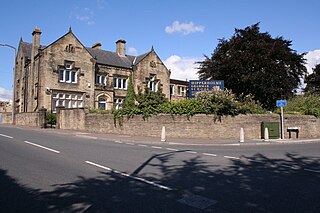
Hipperholme Grammar School is a private grammar school in Hipperholme, West Yorkshire, England. It educates pupils between the ages of 3 and 16.
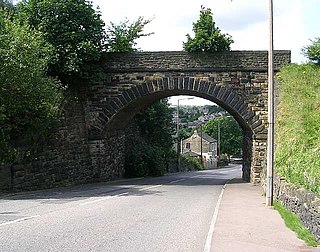
Bailiff Bridge is a village 1.5 miles (2.4 km) north from Brighouse, West Yorkshire, England, and is 5 miles (8.0 km) from Huddersfield and 7 miles (11 km) from Bradford. Bailiff Bridge falls within the Hipperholme and Lightcliffe Ward of Calderdale Council.

Judas Maccabaeus is an oratorio in three acts composed in 1746 by George Frideric Handel based on a libretto written by Thomas Morell. The oratorio was devised as a compliment to the victorious Prince William Augustus, Duke of Cumberland upon his return from the Battle of Culloden. Other catalogues of Handel's music have referred to the work as HG xxii; and HHA 1/24.

Hipperholme is a village in West Yorkshire, England, located between the towns of Halifax and Brighouse in the Hipperholme and Lightcliffe ward of the Metropolitan Borough of Calderdale. The population of this ward at the 2011 Census was 11,308.
Simon Lindley is an English organist, choirmaster, conductor and composer. He was Leeds City Organist from 1976 to 2017 and is Organist Emeritus of Leeds Minster, having been organist and Master of the Music Leeds Minster from 1975 until his retirement in 2016.
Susan Elizabeth Digby, Baroness Eatwell OBE, known as Suzi Digby, is a British choral conductor and music educator.
Saint Peter's Singers (SPS) is a chamber choir associated with Leeds Minster, Leeds, West Yorkshire, England that celebrated during the Season 2017/2018 the fortieth anniversary of the choir's formation by Harry Fearnley in 1977. An anniversary concert took place at Leeds Minster on Sunday 25 June 2017 with the National Festival Orchestra and soloists Kristina James, Joanna Gamble, Paul Dutton and Quentin Brown. Further anniversary year events included Bach Cantatas and Music for Christmas at Fulneck Church in August and December respectively, Handel Coronation Anthems at Holy Trinity, Boar Lane as part of the Leeds Handel Festival in September and a tour of East Anglia in October. In November at Leeds Town Hall, the Singers participated in Herbert Howells's masterpiece Hymnus Paradisi with Leeds Philharmonic Chorus and Leeds College of Music Chorale under the direction of Dr David Hill with the Orchestra of Opera North. 2018 began with a concert of Sacred Choral Masterworks at Leeds Town Hall in February and Bach's Mass in B minor at Leeds Minster on Good Friday 2018 in memory of long-serving member Jan Holdstock. The final concert of the current season takes place at Leeds Minster on Sunday 24 June at Leeds Minster at 5.30. At this event will be presented the first performance of a new work from composer Philip Moore commissioned for the Singers' 40th anniversary – the motet Tu es Petrus – along with music by E W Naylor, Arvo Part, Sir Hubert Parry, Judith Bingham and Maurice Durufle.

Halifax is a town in Calderdale, West Yorkshire, England. It is near the east Pennine foothills.
Sheffield Bach Society was founded in 1950 to commemorate the 200th anniversary of the death of J S Bach in Leipzig, and to bring the music of Bach to Sheffield audiences. It was led first by Norman Barnes, then for many years by Dr Roger Bullivant, who conducted the choir for 38 years. Dr Bullivant was succeeded by Peter Collis in 2000, and in 2010 by Dr Simon Lindley. The Society’s President, Professor George Nicholson, conducted during the 2021-22 season, and the choir appointed new conductor Philip Collin to start from September 2023.
William Priestley (1779–1860) was a Halifax wool clothier and eminent local musician, antiquary and literary gentleman. His strong interest in music, especially German, was manifested in his personal library, which housed many unusual items of German choral music; these formed much of the early repertoire of the Halifax Choral Society, which he is credited with founding.
The Southampton Philharmonic Choir is a large choral society based in Southampton, England. It has around 170 members and also benefits from collaborating with the students of the Southampton University Philharmonic Choir. The choir regularly performs with a professional orchestra, the New London Sinfonia, and is directed by David Gibson.
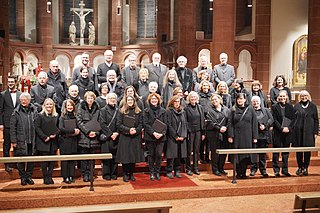
The Chor von St. Bonifatius is a German mixed choir, the church choir of the parish St. Bonifatius, Wiesbaden. It was founded in 1862 as a male choir and was a mixed choir from 1887. From 1981 to 2018, it was conducted by Gabriel Dessauer, who founded two children's choirs. The group sang the first performance in Germany of John Rutter's Mass of the Children and performed in Azkoitia, San Sebastián, Görlitz, Bruges, Macon and Rome. Colin Mawby composed for the choir the Missa solemnis Bonifatius-Messe for the 150th anniversary, celebrated on 3 October 2012. From 2019, the choir has been conducted by Roman Twardy who conducted in his first concert Dvořák's Stabat Mater. On 1 January 2022, Johannes Schröder became church musician. He conducted as his first choral concert Verdi's Requiem in an arrangement for small ensemble.
